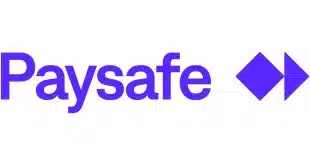Claims by banks that merchants won’t pass along savings from the Credit Card Competition Act to consumers are grossly misleading and do not reflect the economic realities merchants face, argues the Merchants Payments Coalition, a lobbying group representing sellers on payments-acceptance matters.
Passing along cost savings or at least holding the line on pricing in the wake of rampant inflation is central to a merchant’s business because retail is highly price competitive, says Doug Kantor, an MPC executive committee member and general counsel for the National Association of Convenience Stores.
To support his claim, Kantor points to the narrow margins that merchants earn, generally between 2% and 3%. That range does not fluctuate upward when merchants’ cost of goods and services decrease, he adds.

When the cost of goods and services goes down, merchants will lower their prices to entice consumers to purchase more, but keep pricing at a level that maintains their profit margin, Kantor says. Conversely, when the cost of goods goes up, merchants will raise prices, but their margins stay in the same range, and in some cases will narrow to soften the blow of the price increase.
“Given the price competition in retail and the narrowness of retailers’ margins, retailers really don’t have the ability to pocket any savings from being able to route a credit card transaction over a lower-cost network,” Kantor says. “When costs go down or up that’s reflected in the pricing and margins don’t get bigger. The argument retailers won’t pass along savings from the CCCA is a myth perpetrated by an industry that has cartel pricing, not competitive economics.”
The CCCA would require financial institutions with $100 billion or more in assets to enable at least one network other than Visa or Mastercard for credit card processing.
Claims that credit card issuers will only choose alternative networks that don’t erode their interchange revenues are also unrealistic, as true network competition will force price competition, Kantor says.
“Of course, card issuers want to choose networks that give them as much revenue as possible, but right now there is no counterbalance to the Visa and Mastercard networks, which have the same pricing,” Kantor says. “The CCCA is intended to create a counterbalance that will bring [credit card swipe] fees down. The belt tightening on fees will start at the network level, then spread to all fees [associated with card acceptance] as competition increases.”
Kantor notes that research from payments consultancy CMSPI shows that merchants would save $16.4 billion annually in credit card acceptance fees on Visa and Mast6ercard volume of $100 million from passage of the CCCA, up from an estimated $15 billion in 2023.
“That’s significant, but is not the sky-is-falling scenario the banking industry is pushing,” Kantor says.
Despite the MPC’s arguments that the CCCA will spur price competition, some observers question whether debit networks—seen as the most likely alternative systems—can compete with Visa and Mastercard on price after investing in the infrastructure to handle credit card transactions. Some observers also question whether these systems can match Visa and Mastercard’s level of network security.
Don Apgar, a director for merchant payments research at Javelin Strategy and Research, argues these doubts stem from the idea that, after making these investments, debit networks will want to recoup their costs through higher network fees.
“Debit networks do not have the infrastructure to handle credit cards now, and Visa and Mastercard have spent, and continue to spend, a lot on security,” Apgar says. “By the time a debit network covers the cost to add the infrastructure to process credit cards and beefs up security, will they really be any less expensive than Visa and Mastercard?”
Kantor argues that data from the Federal Reserve shows smaller alternative networks are already more secure than the Visa and Mastercard networks. “Visa and Mastercard spend a lot on security, but that’s because they are large,” Kantor says. “Smaller networks spend less because they are smaller. Plus, the data shows they are better when it comes to network security and reducing fraud, which is rising for Visa and Mastercard.”







